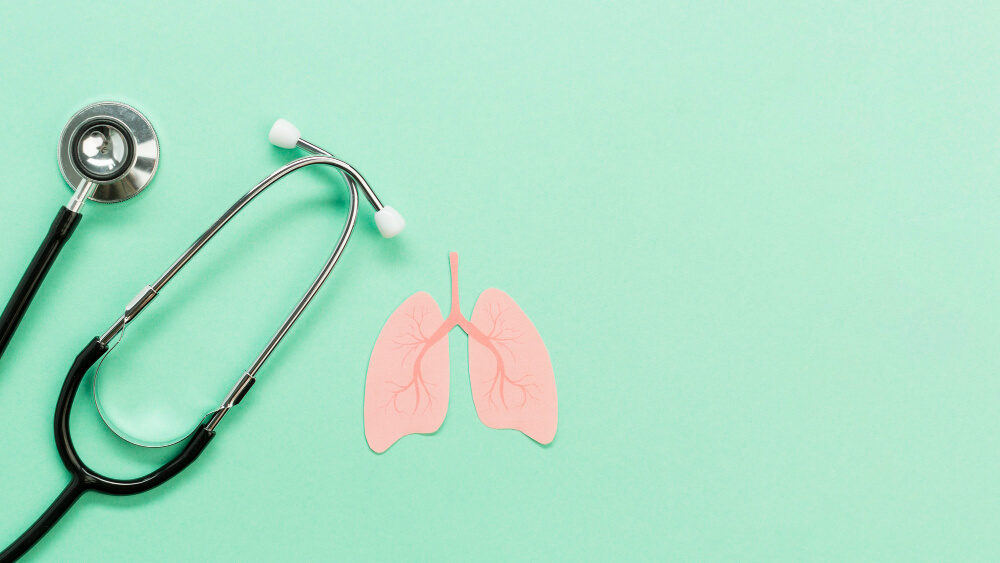Maintaining optimal lung health is crucial for overall well-being, vitality, and quality of life. As a distinguished interventional chest physician with over 25 years of specialized practice in respiratory medicine, infectious diseases, and tuberculosis, Dr. Kumar Doshi provides invaluable insights into recognizing signs of healthy lungs. In this comprehensive article, we explore key indicators of lung health, emphasizing the importance of respiratory care, preventive measures, and expert recommendations to support lung function and enhance overall respiratory well-being.
Key Indicators of Healthy Lungs
- Efficient Breathing and Oxygen Saturation: Healthy lungs facilitate efficient breathing, allowing you to breathe effortlessly, deeply, and comfortably without experiencing shortness of breath or wheezing. Dr. Doshi emphasizes the importance of monitoring oxygen saturation levels using a pulse oximeter, with normal levels typically ranging between 95% and 100%, to ensure adequate oxygenation and optimal lung function.
- Clear and Productive Cough: A clear and productive cough that effectively clears mucus and irritants from the airways is a sign of healthy lung function. Dr. Doshi underscores the importance of paying attention to the color, consistency, and frequency of cough, as persistent coughing, changes in sputum, or coughing up blood may indicate underlying respiratory conditions that require medical evaluation and intervention.
- Normal Respiratory Rate and Lung Sounds: A normal respiratory rate, typically between 12 to 20 breaths per minute, and clear, normal lung sounds without wheezing, crackles, or abnormalities during auscultation are indicative of healthy lung function. Dr. Doshi recommends regular self-monitoring and annual lung function tests to assess respiratory rate, lung sounds, and overall lung health.
- Sufficient Physical Endurance and Exercise Tolerance: Healthy lungs support physical endurance, stamina, and exercise tolerance, allowing you to engage in regular physical activities, aerobic exercises, and daily tasks without experiencing fatigue, shortness of breath, or respiratory discomfort. Dr. Doshi emphasizes the importance of maintaining an active lifestyle, practising regular exercise, and monitoring exercise tolerance to support lung health and enhance overall cardiovascular fitness.
- Absence of Respiratory Symptoms and Diseases: The absence of respiratory symptoms, such as chest pain, wheezing, coughing, shortness of breath, and respiratory infections, and a low risk of respiratory diseases, such as COPD, asthma, and lung cancer, are indicative of healthy lungs. Dr. Doshi underscores the importance of recognizing and addressing early signs of respiratory conditions, seeking timely medical evaluation, and implementing preventive measures to preserve lung function and support respiratory well-being.
Expert Recommendations for Maintaining Healthy Lungs
- Quit Smoking and Avoid Secondhand Smoke: Dr. Doshi emphasizes the importance of quitting smoking, avoiding secondhand smoke, and minimizing exposure to environmental pollutants, allergens, and respiratory irritants to protect lung health, reduce inflammation, and lower the risk of respiratory diseases and conditions.
- Practice Good Respiratory Hygiene: Practicing good respiratory hygiene, such as covering your mouth and nose when coughing or sneezing, washing hands frequently, using hand sanitizers, and avoiding close contact with sick individuals, can help reduce the spread of respiratory infections and support lung health.
- Adopt a Balanced Diet and Healthy Lifestyle: Incorporating a balanced diet rich in antioxidants, vitamins, nutrients, and anti-inflammatory foods, maintaining a healthy weight, staying well-hydrated, practising regular exercise, managing stress, and getting sufficient sleep support lung health, enhance respiratory function, reduce inflammation, and strengthen immune defences.
- Regular Medical Check-ups and Lung Function Tests: Dr. Doshi recommends scheduling regular medical check-ups, annual lung function tests, and preventive screenings to monitor lung health, detect early signs of respiratory conditions, implement timely interventions, and optimize lung function and overall respiratory well-being.
Conclusion
Understanding key indicators of healthy lungs, recognizing early signs of respiratory conditions, and adopting preventive measures and healthy lifestyle choices are essential for protecting and preserving lung health, enhancing respiratory function, and ensuring optimal overall well-being. Dr. Kumar Doshi’s extensive experience as an interventional chest physician underscores the significance of prioritizing lung health, understanding respiratory physiology, and embracing proactive strategies to support lung function, reduce the risk of respiratory diseases, and ensure long-term respiratory health and vitality.
By paying attention to signs of healthy lungs, implementing expert recommendations, adopting a holistic approach to lung health, and following a proactive respiratory care regimen, you can take proactive steps to protect, support, and optimize lung function, ensuring optimal respiratory health, vitality, and quality of life.

